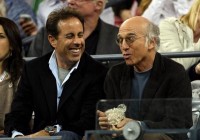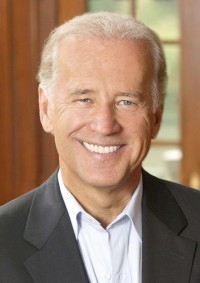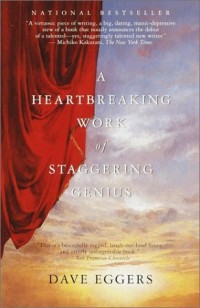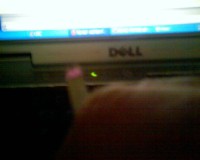"Curb Your Enthusiasm": Jerry Seinfeld Reconsidered

Did you watch “The Simpsons” last night? I did, and about halfway through I had a weird and difficult-to-categorize feeling that I was only later able to identify as shock that the episode did not entirely suck. I’m not making any claims for its greatness, mind you, but it was one of the few times in the last, say, ten years where I saw a new “Simpsons” episode and thought, Well, wow, that wasn’t terrible.
Which brings me to “Curb Your Enthusiasm.”
I was slow to warm to “Curb Your Enthusiam.” It probably took me until the second season, with its “Survivor” joke, before I finally got on board. I know plenty of people who can’t stand it, because the humor can be off-putting or downright annoying, depending, but whatever, it worked for me. For that reason I thought the last season’s finale-with Larry a full member of the Black family-was almost the perfect way to end the series, because it was so unexpected and not in keeping with the rest of the show. It was the perfect absurd capstone.
So I was already predisposed to dislike this season. It seemed a little too meta, in that, like “Seinfeld,” it was a show past its prime going back for another bite of the apple. (I also have a theory that every episode of “Curb” is a direct analogy to an episode of “Seinfeld,” but lord knows it will take someone with much more fortitude and interest than I to get tangled up in those weeds.) And, at least for the first half, I was considerably less amused than I had been previously. The show was trying too hard, Larry was too obnoxious, the scenarios were too outlandish, etc.
But the last couple episodes, with the “Seinfeld” reunion, were indeed some of the funniest television I’ve seen this year. And they managed to do something I would have thought impossible: They made me rethink my distaste for Jerry Seinfeld and his eponymous show. What to me was one of the more interesting aspects of “Curb” was the way that it seemed to be Larry David’s claim to the legacy of “Seinfeld,” i.e., “Everyone thinks the show was all Jerry, but really, look how much of it was me.” It’s like Keith Richards’ first solo record (Talk Is Cheap, 1988), where you’re all, “Oh, right, THAT GUY. I knew he was good, but I had no idea how much of the sound came straight from him.”) What has been absolutely amazing about the end run of this “Curb” season is the way that Jerry Seinfeld, appearing on Larry David’s show, has been able to present himself as, yes, just as much the voice of “Seinfeld” as David. The meta is off the charts.
Watching the episode-within-an-episode last night, hearing all the familiar “Seinfeld” cadences, really made me wonder: Why do I hate “Seinfeld” so much? I mean, I liked it when it was on. It was certainly fresh for its time. Is it the endless repetition, the fact that you are more than likely to flip past it at least three times a night? It it some kind of reverse nostalgia against the nineties? Whatever the reason, last night’s “Curb” finale made me reconsider.
But let’s end it here, shall we? I mean, how are you gonna have a better series capper than that?
Frank Gehry Is Just A Scam
Here is how Frank Gehry designs a hat, which is pretty much like how he designs a building: “Gehry said that he had done the initial drawing on his iPhone, which an assistant then produced: a violet scribble with a black-and-blue iris at the center.” SCAM ARTIST.
Another Blackberry Commercial Irks In Many Ways
You know you’re really late to the party when you learn about a new trend in youth culture from the Times’ Sunday Styles section. Sadly, that’s what happened this weekend when I read Guy Trebay’s article on “jerking,” a new dance craze that’s apparently burst out of Los Angeles via the internet. On the upside, the new knowledge answered a question I’d been asking my television machine for the past few weeks. This was: What is that spastic karate-chop shit the crazy-haired girl in those “All You Need is Love” Blackberry commercial is practicing in front of her bedroom mirror? It seems strangely codified; she films others doing it, then tries really hard to perfect her own version. You feel embarrassed for her when you see it. (I hope she got a paid a lot for that commercial.) But then we’re asked to believe she wins the respect of her crew and their rivals after executing perfectly in a street dance-off competition. (The theme of the commercial seems to be: You can do anything if you really try your best. Climb a mountain, make clothes, do ballet, whatever.)
So, good to learn: she is supposed to be jerking. But! Those Blackberry commercials don’t get anything right. (They’re still in the doghouse, remember, from subjecting us to that godawful U2 song all summer.) If you YouTube the jerking videos made the by the kids in L.A., you see that the moves are actual not nearly so violent or effortful. There’s actually a cool casualness to it all that’s much easier to watch without puking into your shoes. (And some of the hit jerking songs are nice, throw-back candy rap.)
Also, on the rock tip, the song, the “All You Need is Love” part. We watch this band practicing in the studio, trying their best to get it right. We see them have a “that’s it, we got it!” moment. Then we see the singer, sitting at home with an acoustic guitar, strumming chords and jotting down words in a notebook. As if the guy is composing something, as if he is writing the song right then. Like, Hmm, maybe I’ll call it “All You Need is Love.” It’s a pretty good song. Pretty catchy, isn’t it? Well, fuck you, Blackberry! Because I’m old enough to not know what jerking is, I am also old enough to know that that particular song was written a long time ago. By a different band. The Beach Boys, or the Monkees or something.
Everybody Hugs Silvio

“The Prime Minister needs cuddles. I have seen a few things in my time but not this, twenty women for one man. At orgies there are more or less the same number of men and women, but here there was only one man with copulation rights — the Prime Minister.”
-Patrizia D’Addario, the prostitute at the center of Italian Prime Minister Silvio Berlusconi’s prostitute-fucking scandal, recounts the party at which she met the man. The Times has excerpts from her new memoir, Gradisca, Presidente (Take Your Pleasure, Prime Minister), including the part where “I got up and went to the bathroom, partly to have a pee and partly to change the cassette in my recorder.”
Jedward X-ed Out

Sad news from Britain: Bizarre identical-twin phenomenon Jedward have been voted off whatever program they were recently appearing on. And now, life resumes as before, if perhaps with a little less mirth to go around.
The Magna Cum Laude Recession

It’s a funny thing, newspapering. Last Saturday, for example, the Washington Post carried a dour dispatch in its business pages announcing that the DC unemployment rate ticked up another half a percentage point in October. This was “its highest level in 34 years of record keeping,” noted reporter V. Dion Haynes. While the 11.9% jobless rate is in line with that of other major cities, there’s also a peculiar lag in the employment scene here; even though employers in metro DC have added 10,200 jobs in the more credentialed end of the service industries, such as education and health care, they make a poor match for the District’s labor market. Citing the work of George Mason University’s Center for Regional Analysis, Haynes notes that “the District has a higher proportion of undereducated, low-skilled people who have been most vulnerable to job cuts,” and so it stands to reason that “many of the new, higher-paying, higher-skilled jobs in the city are going to people in the suburbs” of Maryland and Virginia. Eagle-eyed readers of the Post business section might recall a similarly underplayed story from earlier this month, which found that DC’s rarely functional government has been stoking this urban skills gap by failing to direct recipients of welfare assistance to programs upgrading job skills and offering counsel on job search strategies-even though such referrals are more or less mandatory under federal law.
But that’s all just the unremarkable daily grist of recession coverage in a city long besieged by stubbornly persistent poverty and contending with a long-frayed patchwork of public assistance resources: Poor people staying poor, with future prospects shimmering into mirage-like visions of marginal improvement. And that, in turn, is why you see precious little local reporting in the Post’s “Coping with the Recession” package, a months-long series tracking national downward-tending economic trends, which has plainly been sent packing across its many appointed column inches with a decal on its luggage that reads: “Destination Pulitzer.” The previous big-picture installment in the series, after all, concerned a recently divorced credit-card executive who is “squeaking by on $300,00 a year.”
So the day after the A-11 Saturday news about worsening low-skill joblessness, readers of this Sunday’s paper were greeted on its front page by a very different face of the recession’s jobless ranks: Melissa Meyer, a 23-year-old magna cum laude graduate of George Washington University who has been living with her parents in Missoula, Mont., as she rethinks her long-term career prospects.
Now, there is no doubt that this is indeed a newsworthy trend: No one matriculates as a business and marketing major, as Meyer did, with the expectation of bunking in her old bedroom back at the family home. That’s especially the case at a school like GWU-routinely ranked among the most expensive in the nation-where students have every reason to hope that they will follow in the cushioned, entitled footsteps of celebrated alums like Jackie Onassis.
But what’s surpassingly odd about Post reporter Eli Saslow’s blowout portrait of Meyer’s job travails is that Meyers’ downward spiral in the labor market leaves us with much the same moral that the grubbier news bubbling up from the low-wage, low-skill sectors of the economy does: Even high-achieving candidates like Meyer are being groomed for positions that simply aren’t there. Not only was she stiffed by a sexy New Economy Seattle firm that had instituted a hiring freeze and (what seems infinitely more ominous) shuttered the employee wine bar; she’s also put through the demoralizing, bewildering ordeal of putting in for jobs she has no formal training to qualify for.
In one central vignette, for instance, she attends an orientation session for applicants for three part-time substitute teaching slots in the Missoula public school system. As Saslow notes, Meyer “has never taught before, nor does she particularly enjoy children, but she has been turned down by a restaurant, a bakery and an herbal shop during the past two weeks.” Seventy-five people have turned out for the event, and Meyer is clearly the odd one out-six are certified assistant teachers, many others have education degrees, and almost everyone but her at least has a bachelors degree in English, science, or some other field taught in public schools.
All the jobs counselor can suggest for her is to hand out business cards at her high school alma mater, in the hope that “the staff will help out a former valedictorian by requesting her as a substitute.”
To her credit, Meyer, who clearly deserved her many academic honors, draws a bracingly noncomformist lesson from such encounters. “Why waste my time continuing to apply for jobs that don’t want me?” Better by far, she confides to her boyfriend, a local rafting instructor, to pick up and travel-perhaps to a Nepalese yoga ashram, or a New Zealand vineyard. “I don’t want to look back after 30 years in a cubicle and think, ‘I should have….’”
That, of course, is an option that can only occur to someone who has something more than the safety net of poorly administered public-sector job training programs to fall back on. For all the psychic pain of graduating into a job-starved economy, after all, it’s still far easier to list downward from the commanding heights of credentialed privilege than to burrow upward from the depths of an urban service economy pocked with fearsome skill mismatches that favor outer-ring suburbanites. Odds are that DC’s majority-black industrial reserve army, disproportionately concentrated in Southeast DC’s Ward 8, where joblessness is now more than 30%, won’t be scheduling all that many ashram getaways-and that, it seems, is what it would take for its members to draw the attention of the Post’s economic features team.
Chris Lehmann changes a mean roll of toilet paper himself, if you’d like to hire him to do so. (Kidding! HE WOULD NEVER. Probably.)
Reading Sarah Palin Live, with Rudolph Delson: Part Two
by Rudolph Delson
Sunday, November 22, 7:34am: Good morning. Today I will read another two hundred pages of Sarah Palin. (To hear about the first two hundred pages, click here.)
But, may I tell you about my dream? Because I just awoke from this dream. There was a broad blue sky, streaked with clouds. And there was a giant head set against that sky. And the head was speaking to me. I have attached an image of it after the jump.

Yes, last night I dreamed of Samuel Johnson. Hold on, let me eat breakfast.
. . .
8:15am: We know why HarperCollins wanted to publish this book: Because enough Americans are curious to read what Sarah might possibly write that HarperCollins could pay Palin an advance of $5,000,000 and still make a profit on the venture.
We know why Sarah Palin wrote this book: Because HarperCollins paid her $5,000,000, and because she wants to vindicate herself in the public mind. (And, as I realized yesterday to my wonder, because she believes we might actually vote for her.)
And we know why we want to read it: Because we are curious to read what Sarah Palin might possibly write.
It is a perfect system of human gratification. And so, with the publication of Going Rogue, millions of pounds of pollution have once again been heaved upon the earth in order to make us Americans happy. Three hundred years from now, there will be no wild salmon on earth, but there will be copies of Going Rogue. And so what will humanity find in this book, in the year 2309, that is better than a salmon?
This reminds me that I must eat breakfast. And I still haven’t told you about my dream.
. . .
8:22am: Samuel Johnson was born three hundred years ago this year. He wrote a dictionary that is still in print, and that is better than a salmon. In my dream, he said to me:
The mischievous consequences of vice and folly, of irregular desires and predominant passions, are best discovered by those relations which are leveled with the general surface of life, which tell not how any man became great, but how he was made happy; not how he lost the favor of his prince, but how he became discontented with himself.
Such are the incomprehensible dreams a fellow has after reading two hundred pages of plain talkin’. Dr. Johnson continued:
Those relations are therefore commonly of most value in which the writer tells his own story.
There was more to the dream. But I still haven’t eaten breakfast. And I still have not begun the second half of Palin.
. . .
9:42am: Over breakfast, I see that the New York Times is covering Sarah Palin’s book tour like a political campaign; I see that the New York Times has chosen this week to review a history of the memoir. Me? I do not read this article, this review. Me? I eat my eggs and my toast, and I sulk.
. . .
9:50am: Part Three of Going Rogue begins on page 209, with Palin flying to Flagstaff, Arizona to be vetted by John McCain. In Flagstaff she meets Steve Schmidt, the archetypal political lieutenant, the consummate political athlete, the man running McCain’s campaign. Palin cannot hide her awe and her respect. She has spent 208 pages boasting about how her entire political career has been built on avoiding experts and insiders and players, how her campaigns have been scrappy and homegrown and homespun and grassroots and organic and Alaska and real. It is, as they say, hogwash, but it is her hogwash. And now, on page 209, without flinching, she casts it aside. She meets Schmidt, and she does all she can to please him.
Structurally, it is very impressive. We are the precise middlepoint of the book, and Palin has sold out.
. . .
10:01am: Page 216. Palin tells Schmidt that she has nothing against the lesbians, one of her best friends is lesbian. But, she tells Schmidt, she opposes gay marriage-or, as Palin calls it “homosexual marriage.” The reader can only wonder whether Palin has ever asked how her lesbian best friend feels about the word “homosexual.”
. . .
10:06am: Page 219. Palin says, apropos evolution:
I needed the [McCain campaign staff] to know they weren’t going to put words in my mouth on this issue. I would go with them reasonably to a nuanced position, based on facts.
And her “nuanced position, based on facts”?
I didn’t believe that human beings-thinking, loving beings-originated from fish that sprouted legs and crawled out of the sea. Or that human beings began as single-celled organisms that developed into monkeys who eventually swung down from the trees; I believed we came about through a random process, but were created by God.
Let me summarize Palin’s nuanced position, then. She does not believe she needs to understand anything about evolutionary science in order to have an opinion about evolutionary science. But that is my summary. Here is hers:
I wouldn’t parrot a politically correct line just because some voting bloc might get upset.
The foggy mystery of Palin’s popularity burns off sometimes; sometimes I am able to see in bright light why she is beloved. She is beloved because she willing to tell Americans that just because they are ignorant does not mean they are wrong.
. . .
10:29am: Page 223. We have reached the moment in Palin’s story when McCain announces that she will be his running mate. McCain and Palin are about to appear together for the first time, in Dayton, Ohio:
I was so humbled and honored, so thankful, and so ready to get on the trail with the campaign. Now the crowd’s roar poured backstage like a powerful locomotive.
I believe this may be art. I believe we are meant to read “locomotive” and think “train wreck” and “derailment.”
. . .
10:36am: Still page 223, still Dayton, Ohio:
Glancing out through the end of the tunnel, I could see the crowd, and flashes of red, white and blue. John [McCain]’s blue-and-gold posters, emblazoned with his campaign slogan, “Country First,” rippled in the stands.
I was proud of the senator. He is so bold, so out of the box, I thought.
He didn’t go with a conventional, safer pick. John believed in change, the power of independent and committed individuals, the power of women.
Yes. On the very same slippery page that Palin claims to have been “so humbled” to be nominated, she expresses the ultimate pride. What makes John McCain great? That he was bold enough to pick her to be his Vice President.
(That said, it is not an unprecedented sentiment; Geraldine Ferraro said much the same of Fritz Mondale; but Geraldine Ferraro comes across as less of a naïf; by 1984 she and her colleagues had been arguing for almost two years that the Democrats must nominate a woman. Anyway, when a veep claims to be “so humbled,” never believe her, or him.)
. . .
11:16am: Page 237:
The Bristol story was a different matter. After news broke of her pregnancy, the media train jumped the truth track in record time
All together now: I’ve been working on the railroad, all the live long day …
. . .
11:31am One of the great tropes of vice-presidential literature is the lament of the supporting actor. Every vice-presidential contender who writes a memoir writes about the humiliation of having their own words edited by headquarters, every one writes of the frustration of having their deed preempted by headquarters. “If they had let me run the campaign I wanted to run, I could have won; but they wouldn’t let me do it; I was only the veep!” Every man and woman in history who has run for Vice President has been cut up by the national press; and every one of them thinks they were the first, thinks they had it the worst.
Palin is no exception. Where she is exceptional is in her lack of empathy.
. . .
11:38am: Because here, on page 242, she recounts her speech to the Republican National Convention, and in particular she recounts her line: “I guess a small-town mayor is sort of like a ‘community organizer,’ except that you have actual responsibilities.” I remember how Palin delivered that line; I remember the derision in her voice; and I remember the pleasure she took in her own derision; she was trying to insult Barack Obama, and she liked herself for having insulted him.
It is breathtaking, then, to hear what she has to say, in Going Rogue, about that particular line of her speech:
Applause erupted again, a shout-out to independent-minded American who didn’t look to government for all the answers.
I believe she is saying that small-town mayors are not part of the government, but that community organizers are.
I was so proud at that moment because I knew that even though the other ticket had looked down on my small-town mayor creds, the convention delegates clearly knew that national leaders are nurtured in the cradle of local service. There are only a few hundred people in Congress making “big” decisions, but tens of thousands of hardworking mayors and council members and commissioners and volunteers who keep this nation functioning every day. They, not Congress, keep the roads paved and the sewers running and the schools open and the police force trained and firefighters equipped. Small-town involvement isn’t something to be scorned; it’s something to be upheld as the foundation of what makes this country great.
Why did Palin scorn Barack Obama’s community involvement? Because she believes that community involvement isn’t something to be scorned. And why does Palin believe that Americans don’t look to government for the answers? Because she believes that Americans instead look to mayors and council members and commissioners and Departments of Transportation and Departments of Sanitation and Departments of Education and Police Departments and Fire Departments for answers.
. . .
11:54am: Yesterday there were moments when I enjoyed reading Palin; today, for me, she is despicable.
. . .
12:43pm: I am determined to be at page 300 before lunch. The book has settled into a slow replay of everything I remember from the autumn of 2008, as retold by someone who never watched the news.
. . .
12:46pm: Palin cannot refer to someone who has Down syndrome without using either the adjective “special” or “precious.” “These precious people,” she calls children with Down syndrome. A “very special community,” she calls the community with Down syndrome. Once, on page 251, she varies her formula. “These amazing people.” And then it’s back to “special” and “precious.”
She also likes to remind her readers that all that Down syndrome amounts to is an extra chromosome; I agree with her; that is a good fact to remember. Still, it is baffling that someone who is so impressed with the “special,” “precious,” and “amazing” difference that a single chromosome can make does not believe in evolution.
. . .
1:02pm: Vulgarity! How, if you are Sarah Palin, do you handle vulgarity?
Page 238: “Bullcrap.”
Page 282: “B.S.”
Page 282: “Dang it.”
Page 228: “This is f****d up!”
Page 279: “[M]y children looked out the windows of the Suburban and saw people wearing T-shirts that said lovely things like ‘Sarah Palin is a C — -.’”
So that’s one kind of vulgarity that Palin, as an author, must handle. And here is how she handles the other kind of vulgarity:
Page 221: “I looked up to see Cindy [McCain] walking down from the house to join us. She is one of the most striking women I’ve ever seen, and that day she reminded me of one of those perfect, elegant moms on a 1950s TV show: a sleeveless dress, a little sweater, not a hair out of place. So petite and pretty, with those intense blue eyes.
. . .
1:10pm: It has occurred to me who, in America, would be the ideal reviewer for this book. It must be someone like Palin herself: someone somewhat politically stupid, someone somewhat politically infamous, someone bent on remaking herself as bright and good. The ideal reviewer for this book is Monica Lewinsky.
. . .
1:21pm: Page 286. Senator Joe Lieberman, ex-Democrat and ex-vice-presidential candidate, has a private talk with Sarah Palin. Anyone care to guess what he tells her?
. . .
1:41pm: “God is going to see you through this,” Senator Lieberman said. “Just put your faith in Him and let Him take care of it.”
. . .
1:43pm: Palin is describing her preparations for the debate with Joe Biden. She describes, on page 287, the McCain staffer who plays the role of Biden in the mock debates:
[H]e had the senator’s voice down pat, including some of his semifolksy sayings (“As my mom used to say, ‘God love ya, Joe, but you are wrong!’”).
Being called “semifolksy” by Sarah Palin is a dire insult indeed. Just before the debate itself, Palin prays:
I wanted to say that my heart’s desire was that our Lord would guide my words in a way that would be truthful and honoring to Him. But I said, as simply as I could, “Just pray we win the debate.”
And then she waits to go on camera, and spots Joe Biden across the stage:
I had never met him before, but now I tried to catch his eye, to give him, I don’t know, a friendly nod, a thumbs-up, something to acknowledge that, hey, ultimately we’re all on the same team. Go, U.S.A.! But Senator Biden didn’t make eye contact.
Instead he looked past me. His features then hardened into what can only be described as a “game face.” I could respect that. I knew what it was like to get into a zone before a big game.
Then the senator started to stretch. Literally.
He put his hands on his hips and, staring grimly at some point behind me, began to bend at the waist, bouncing first to the right, then to the left. Then the neck rolls started, presumably to get ride of all that nasty tension from being the front-runner. After that, the senator from Delaware began stretching his quads, grabbing his dress shoe and pulling it behind his designer-suited rear end. Right leg, then left.
This is vice-presidential literature at its finest. If only Palin always wrote so well.
. . .

. . .
2:07pm I quote from page 300:
Kid Rock, for instance, is very pro-America and has common sense ideas.
. . .
2:23pm: On page 304, Joe the Plumber and socialism; on page 306, Bill Ayers and palling around with terrorists; on page 308, Tina Fey and SNL
Reading these names, reading Palin’s memories of the incidents that made those names famous, I realize now that I was wrong yesterday to say that Sarah Palin was a character from Cervantes, that she was Sancho Panza. No, I recognize Sarah Palin now. She is a character from Eudora Welty. Sarah Palin is a Chisom. I quote from The Optimist’s Daughter:
Laurel closed her eyes, in recognition of what had made the Chisoms seem familiar to her. They might have come out of that night in the hospital waiting room-out of all times of trouble, past of future-the great, interrelated family of those who never know the meaning of what has happened to them.
That is Sarah Palin.
. . .
2:59pm: Page 322. It is late in the 2008 campaign. Palin is preparing a speech on “the special needs community.” But the McCain campaign has hired “a special needs coordinator.” And “the special needs coordinator” calls Palin “to say we should no longer use the term ‘special needs people’ because special needs families find it offensive.”
. . .
3:03pm: Page 327. Palin receives a call from Nicolas Sarkozy. Except it is not Nicolas Sarkozy, it is a pair of Canadian comedians. Quoth Palin:
That’s when the merde hit the fan.
Eighty-odd pages to go. How many more euphemisms can she find for shit?
. . .
3:21pm: If you ignore the Acknowledgments and the Postscript (which is written by one Dewey Whetsell), Going Rogue ends on page 403. And yet Sarah Palin and John McCain have lost the election as of page 339. Her thoughts?
It had been the most spectacular ride-a roller coaster, yes, but we’d do it all over again in a heartbeat-and we’d learned some lessons along the way.
What sorts of lessons?
… once-in-a-lifetime life lessons all across the country.
Such are the sentiments expressed in this book, this memoir devoid of memory. And what are my thoughts, upon reaching page 339? Well, I am thinking of my dream last night, in which Samuel Johnson also said to me:
I have often thought that there has rarely passed a life of which a judicious and faithful narrative would not be useful. For, not only every man has, in the mighty mass of the world, great numbers in the same condition with himself, to whom his mistakes and miscarriages, escapes and expedients, would be of immediate and apparent use; but there is such an uniformity of the state of man, considered apart from adventitious and separable decorations and disguises, that there is scarce any possibility of good or ill, but it is common to human kind.
Thus, the failure of Going Rogue as literature. Except at the rarest moments … the chapter when Sarah first meets Todd, the chapter when the Palins first hear of the Down syndrome diagnosis, the chapter when Palin meets Biden … when you subtract the “adventitious and separable decorations and disguises,” there is nothing left. This book is not about “the state of man;” this is a book about “once-in-a-lifetime life lessons.”
It is now 3:38 pm. I have sixty-four pages still to read. I’ll be back online by 6pm in Brooklyn to finish off this judicious and faithful narrative, this piece of merde, this can of peas.
. . .
5:12pm: Night is falling on Brooklyn.
. . .
5:44pm: Page 356. Palin has returned home to Alaska, and the national press has followed her. She describes the petty stories, the petty vendettas; she describes how cranks from all across Alaska, enjoying the post-election patronage of rich liberal Sarah haters from the Lower 48, began filing ethics complaints against her as Governor. All of these complaints were frivolous, Palin assures us; none of them were meritorious; it was all part of a massize left-wing conspiracy to destroy her capacity to govern. It is enough to drive a memoirist to cuss:
What a bass-ackwards way of doing the people’s business
. . .
6:18pm Between pages 370 and 371 are some sixteen pages of photographs. (Palin’s parents with Henry Kissinger! Palin’s kids in voting booths!)
This brings to sixty-seven the total number of photographs in the book. Permit me some further mathematics. Going Rogue is 408 pages long, with a maximum of 32 lines per page, or, at most, some 13,000 lines long. There are roughly ten words per line, so, discounting for the occasional section of dialog and discounting for chapter breaks, the book must be about 125,000 words long. Using the same algorithm, Joe and Hadassah Lieberman together wrote 76,000 words for An Amazing Adventure, and Richard Nixon wrote 210,000 words for Six Crises. In the scheme of things, midway between the Liebermans and Nixon seems like a fine place for Palin to be.
. . .
6:36pm Page 371. I just realized! Palin has yet to mention Levi Johnston by name.
. . .
6:39pm Pages 356 through 360 are dreary. Palin pretends to recount a conversation with Bristol about the Obama stimulus plan. The last time a Republican sounded this juvenile in comparison to Obama was when Bobby Jindal responded to the State of the Union. Palin, at her purest, writes:
I thought of the long road ahead for Bristol and Tripp. She’d be fine because she was independent and strong and loved to work, and I loved her and her cousin Lauden’s enthusiastic plans to own coffee shops as a side business while they were busy going to school and growing up. But Bristol and Tripp wouldn’t be fine if pandering politicians buffaloed Americans into believing some utopian promise that big government could “fix” everything through more of the same meddling that had caused the economic failure in the first place.
That last sentence is dumbfounding. Rather than work the math, rather than count the errors in that sentence, let me just ask: To whom is Palin pandering? To whom are her promises addressed? Who is the person literate enough to parse the syntax, yet illiterate enough to believe the semantics? Or is it, in the end, only sounds that matter? Are we all only waiting to recognize the song on the mix tape (LL Cool J! Black Eyed Peas!) so we can yowl along?
. . .
6:52pm: Thirty pages left. All weekend I have felt anxious, exasperated, but a stillness has come over me now. From the apartment below me and beside me I hear television, dinners. But in my soul all is quiet. Sarah is whispering to me, softly, softly.
. . .
7:03pm Page 377. Palin resigns. I, too, am ready to resign.
. . .
7:20pm Page 393. Palin is laying out a political program for America, a Commonsense Conservative program. To me is sounds like a whisper. It is soft, it is soft.
. . .
7:29pm Page 400. Palin has mentioned Ronald Reagan a dozen times in the last dozen pages. I believe she believes she is a Ronald Reagan. It is ever softer, it is ever softer.
. . .
7:33pm In my dream last night, Samuel Johnson said to me, “There are few things not purely evil of which we can say without some emotion of uneasiness ‘this is the last.’” Every time we come to the end of anything, it reminds us that time has passed, that time may never be regained, that we are mortal.
This is one reason we are reluctant to let Sarah Palin leave the national stage. When we have seen the last of Sarah Palin, it means we are that much closer to the day on which we must die.
And so I conclude her memoir.
. . .
7:37pm: But we must not end on a morbid note. To the contrary. In all things vice-presidentially literary, there is great cause for hope. Hold on a moment. I must upload the visage of hope.
. . .

Coming to bookstores in 2011.
. . .
Goodnight.
Reading Sarah Palin Live, with Rudolph Delson.
by Rudolph Delson
Saturday, November 21st, 8:49am: Good morning. I am about to read Sarah Palin.
But I want to say something first about the dust jacket. Going Rogue has a remarkable dust jacket. After the jump I have posted two images for your consideration.

The Memoir that Began the Decade.

The Memoir that Ended the Decade.
So. What we have here on the dust jacket of the last best-selling memoir of the decade is a photograph of Sarah Palin.
She is wearing a red zipper jacket (of some unknowable fabric blend) and a tri-color flag pin (from some unknowable metal alloy). She is gazing left and beaming brightly (and something bright is beaming back at her, illuminating her face with a soft and unnatural glow). The photographer must have been crouching when this photograph was snapped, must have been aiming the camera upward at Palin, because the horizon behind Palin is low in the frame, which makes Palin seem to tower down from blue and optimistic heavens. The effect is worshipful.
Or, the effect is mock-worshipful: The last memoir to feature this much gaudy red fabric, this many maudlin blue clouds, was A Heartbreaking Work of Staggering Genius.
And so, before even opening the book, I am wondering whether Palin is being lampooned. HarperCollins, her publisher, is headquartered at 10 East 53rd Street, New York, New York. This means that the editors and designers and publicists who have spent the last dozen Monday mornings ushering Going Rogue into print have also spent the last dozen Saturdays walking the variegated streets of Brooklyn and shopping the encyclopedic stores of Manhattan, have spent the last dozen Sundays reading only pertinent magazines and eating only well-researched meals. In other words? In other words, these people at HarperCollins-even the dullest of them-are not unsophisticated. They are versed in the national semiotics, are familiar with the elements of portraiture. They know that this photo of Palin is mocking. They know this photo will make half the world recoil, or snort. And yet no one at HarperCollins stopped Sarah Palin from being made a laughingstock by her own dust jacket.
. . .
9:09am: Not half an hour in, and I have realized that I am in journalistic trouble. HarperCollins? Who publishes Palin? Um, so, they also publish me.
I must now eat breakfast. I feel duty-bound not to begin reading until 10:00am.
. . .
9:28am. But, so, the first thing in this book is a map.
It appears on the page before the title page: a map of the northern hemisphere, centered on the Artic Sea. Lines of longitude all converge from every corner, coming together at the North Pole, which is right at the center of the map. “The View from the Top of the World,” the map says.
Russia, upside-down, stretches across the upper part of the map, from about 9 o’clock to about 2 o’clock, and Greenland and Canada, right-side-up, stretch along the lower parts, from about 3 o’clock to 8 o’clock. Between 8 and 9 o’clock, printed in a darker shade of gray than any other landmass, labeled in a font to indicate that it is not a state but a nation, is Alaska.
This map effectively re-emphasizes something I learned at age seven. From an international military perspective, Alaska is our only defense against armies in Kamchatka and Irkutsk.
. . .
10:03am: Have begun reading. Here is the first syntax in the book:
Dedicated to all Patriots who share my love of the United States of America. And particularly to our women and men in uniform, past and present-God bless the fight for freedom.
No comment.
. . .
10:10am: I am on page three, and already I feel the need to type out some more block quotes. Please be patient.
. . .
10:11am: So. When the book opens, it is August of 2008 and Governor Sarah Palin is at the Alaska State Fair. My guess is that by page ten she will receive the amazing & incredible phone call telling her that she has been chose as John McCain’s running mate. (My guess is also that receiving that amazing & incredible phone call will serve as a cliffhanger ending to Chapter 1; my guess is also that the narrative will skip thirty years into the past at the beginning of Chapter 2, so that Palin can recount the amazing & incredible voyage that brought her to the Alaska State Fair, as the Governor, in August of 2008.) But as I said, I am only on page 3:
Years before, I had seen out state speeding toward an economic train wreck. Since construction began in 1975 on what would become Alaska’s economic lifeline, the Trans-Alaska Pipeline, it had grown increasingly obvious to everyday Alaskans that many of their public servants were not necessarily serving the public. Instead they had climbed into bed with Big Oil. Meanwhile, in a young state where people clung to America’s original pioneering and independent spirit, government was growing as fast as fireweed in July.
This prose is only averagely bad. It is plain from the first that Palin writes carelessly, and the reader adjusts. The phrase “an economic train wreck”? It doesn’t evoke any railroad images, it is just a poorly engineered synonym for the noun “disaster.” “Climb into bed”? A sleepy variant for the verb “accommodate.” If she were not deaf to connotation, she would not use the verb “cling” (as in “they cling to guns and religion”) without irony; if she were not deaf to music, she would avoid the repetition of “lifeline” and “Pipeline.” But, again, in terms of vice-presidential memoirs, this is only averagely bad. At least it still makes sense. Continuing:
It didn’t make sense.
It seemed that true public service, crafting policies that were good for the people, had become increasingly derailed by politics and its infernal machines.
And so the prose goes to hell. One paragraph earlier, the train was the economy, and it was speeding toward a wreck. In this paragraph, the train is public service, and it has been derailed. In fact, the train is “increasingly derailed.” Never mind that, in English, a train cannot become “increasingly derailed,” any more than a fetus can be “increasingly aborted,” or than Christ Our Savior can be “increasingly born”-we already knew that no wreck and no derailment could stop this particular vice-presidential locomotive:
But I had a drive to help, an interest in government and current events since I was a little kid, and I had become aware of the impact of common sense public policy during the presidency of Ronald Reagan. I was intrigued by political science in college and studied journalism because of my passion for the power of words.
I want to say that this final sentence is evidence, just like the dust jacket, of the editorial dereliction at HarperCollins; I want to say that letting Sarah Palin put in print that she has a “passion for the power of words” is tantamount to letting her put in print that she is an fool. But perhaps not. Perhaps the employees of HarperCollins did warn her; perhaps Palin was just too arrogant to take heed.
. . .
10:52am: Fifty-two minutes, and I’ve read three pages.
. . .
10:57am: Shit, folks, no foolin’. On page 6, while still at the Alaska State Fair, she gets a phone call. “It was Senator John McCain, asking if I wanted to help him change history.” And then Chapter 1 ends. And then Chapter 2 begins on page 7, and “From Sandpoint, Idaho, where I was born, via Juneau, Alaska, I touched down in the windy, remote frontier town of Skagway cradled in my mother’s arms.”
If you ever write a vice-presidential memoir, make certain to begin in media res.
. . .
11:38am: I am on page 38, having finished Chapter 6, which begins with the following sentence:
By my senior year of high-school, I had been praying that God wouldn’t have in mind for my future one of the local boys I’d grown up with.
And ends with the following sentence:
My young, crushed spirit learned a lesson about guys that day: even the good ones can act like jerks.
The year is 1981, and Sarah Heath has met Todd Palin. It is a fine chapter. We hear about Van Halen cassette tapes, and L.A. Lakers sweatshirts and how, barred from long conversations on the family phone, Sarah would contact Todd from her backporch, using the handheld VHF radio off his fishingboats. It is, in fact, the liveliest chapter about vice-presidential childhood ever written. Ed Muskie tried the same thing, and came off sounding platitudinous. He came off sounding presidential. Sarah Palin actually sounds like someone trying her Christian & autodidactic best to write a first book.
. . .
11:49 am. It is, after all, an autodidact’s book. Oh, she graduated high school, she graduated college. But when Palin remembers her school years, she remembers sports. When she remembers the classroom, she remembers a television being rolled in to show a movie of the moon landing. Her memories of learning to spell are set in church where, during a sermon, she realizes she knows how to spell the word “different.” She has an autodidact’s eclecticism. She has assembled a magpie philosophy, and she can tell you the national origin of every piece of it:
Mom found a depth of spirituality she had been seeking, the filling of what the French writer Blaise Pascal called “the god-shaped vacuum” in every human heart
And she also has this autodidactic tic: Page 3: “My passion for the power of words.” Page 15: “I developed a love of reading and writing early on.” Page 15: “She found clever ways to encourage my love of the written word.” Page 28: “My passion for both sports and the written word.”
. . .
12:19pm: Palin wants to convince the reader, or herself, that she is a great lover and protector of the Alaskan wild. And so, for example, on pages 34 and 35 she waxes on about Alaska’s bountiful salmon, pictured here:

One fish.
It is worth nothing that, in 2008, when Alaskans were called to voted on a measure asking whether or not humanity ought to preserve what the New York Times called “one of the world’s last great runs of Pacific salmon,” Alaskans decided that humanity should not. A major factor in the defeat of the measure in question was, I gather, the opposition of Alaska’s governor, Sarah Palin.
(If anyone knows the latest on this story, by the way, I’d be curious to hear about it in the comments.)
. . .
12:33pm. Page 44. Chapter 7. Palin recounts how she began entering the Miss America Scholarship Pageant to help pay for her college tuition.
She excerpts an exchange, captured on video tape, between herself and one of the judges. The judge, mentioning that Geraldine Ferraro has just become the first female vice-presidential candidate, asks: “Would you vote for a vice presidential or presidential candidate just because she was a woman?”
Pageant contestant Sarah Heath answers, unsurprisingly: “No, I would not vote for someone just because they were a woman. I would vote her the candidate that reflected my political beliefs and had strong character and family values.”
Fine, fine. What is fascinating is what Palin has to say about this exchange now, in 2009. It is the most revealing moment thus far in the memoir. It expresses, in a single breath, Palin’s two most outstanding characteristics, her giant self-regard and her stunted self-reflection:
That exchange, a quarter century ago, now seems either strangely coincidental or a Providential signpost pointing forward my future. And I don’t believe in coincidences.
. . .
12:51pm: Pardon my silence for an hour. I must eat and read.
. . .
1:32pm. While eating a cheese sandwich, I read Palin’s descriptions of motherhood. (These passages are the most saccharine of Americana; they are mom-tastic; they deserve an essay themselves, something in fiery Menkenese. Later, later.) So let me cite one small example. On page 57, Bristol Palin has just been born. “Her shock of black hair, chubby cheeks, and dark, lively eyes showed off her Native heritage.” And what was the child like?:
As she grew she manifested her little mama’s heart by nurturing her siblings and cousins and always begging to babysit.
How Sarah Palin, knowing what she knows in 2009, could write with pride that Bristol Palin always had a “little mama’s heart,” is beyond my power to explain. It was enough to make me put down my cheese sandwich. It is enough to make me spend twenty minutes away from my lunch, hunched over my laptop, trying to find words.
. . .
2:18pm: There are likable moments:
While I served in [the Wasilla] council, a local politician asked me to cut a radio ad for his campaign. I liked his conservative message and said I’d help. Into the KMBQ radio station I brought my hungry, grumpy baby in a Snugli, and the only way to calm Willow was to inconspicuously nurse her while we rolled tape. I acted like I didn’t see the shocked look on the politician’s face as he turned red and pretended it didn’t bother him at all.
That said, “turning red and pretending it doesn’t bother her at all” is a nice summary of what this book has become, by page 77. Palin is recounting her tenure as mayor of Wasilla, which is to say, recounting some of the incidents of her early political life that would be revisted in 2008. Palin explains, for example, her famous run-ins with the town librarian. Red in the face, she pretends that the national media’s portrayal of her a small-town censor doesn’t bother her at all.
. . .
2:32pm: Page 80: “As Napoleon said, ‘Never interrupt your enemy when he is making a mistake.’”
. . .
2:32pm: Page 84: This memoir is reminiscent of Dan Quayle’s, in its incoherence. (In Quayle’s case it seemed calculated; in Palin’s case, less so.) Of her first campaign for statewide office in Alaska, Palin says:
The campaign was also my first opportunity to introduce my fiscal philosophy to all Alaskans. In national politics, some feel that Big Business is always opposed to the Little Guy. Some people seem to think a profit motive is inherently greedy and evil, and that what’s good for business is bad for people.
Of course, among the people who “seem to think” that “what’s good for business is bad for people” is Palin herself, as reflected in that passage from Page 3 that I quoted above, “public servants not necessarily serving the public,” “climbed into bed with Big Oil,” etc. It’s inadvertent, of course. Palin speaks only in rhetoric; which is to say, she speaks only in words she heard somewhere else; which is to say coherence cannot be expected.
Hence the quotes from Pascal, from Napoleon.
. . .
3:00pm: And from Lou Holtz. Page 79:
I have a bulletin board filled with coffee-stained, dog-eared quotes tacked up along with family photos that has followed me from office to office since 1992. One of my favorite quotes comes from author and former football coach Lou Holtz, on how to build your team: “Motivation is simple. You eliminate those who are not motivated.”
Speaking of motivation: Reading this book is like walking through a snowbank. I am up to my icy loins in the whitest cliche.
. . .
3:24 pm: What happens when a clean-mouthed & mom-tastic writer has the perfect cliché to express a sentiment, but the cliché involves mild vulgarity? Page 98:
Then the strained peas hit the fan.
. . .
3:34 pm. This book is 413 pages long, divided into five long parts, each consisting of half a dozen sub-chapters. I have just reached the end of the second part, which occurs on page 104.
It is now the Winter of 2004. Sarah Palin has lost a race for Lieutenant Governor. She is caring for her newest child, Piper, and is going for long runs, and is saying long prayers, and is beginning to feel “a sense of purpose hovering just beyond my vision.” Obviously, God is about to instruct Sarah Palin to seek the governorship.
The third part of the book begins on page 105. I see that it is titled “Drill, Baby, Drill.” It is 100 pages long. I will read it before I go to sleep tonight. But pardon me for a couple of hours while I go for a long run and say some long prayers. I’ll be back on-line by 6pm in Brooklyn.
. . .
5:23 pm: While I ran, I sensed something hovering just beyond my vision. I sensed it was the Spirit of Sarah.
And I realized that the same dynamic that, in 2008, doomed her candidacy for Vice President now, in 2009, dooms her project as a memoirist.
As a candidate, Palin believed her appeal lay in her populism; in her speech and in her manner, she comported herself as though she were unspoiled by any worldly refinements; she was a “hockey mom,” she was “from Main Street, not Wall Street;” Sarah Palin, we were told, was one of us. But America was at an undemocratic moment in 2008; Americans did not want a government of the normal and of the everyday, a government of the averagely bad; Americans wanted a government of superior people; Americans wanted, in other words, competence.
Similarly so, as a memoirist, Palin believes her appeal lays in her common tongue. She ventures no opinions we have not heard before, from all our neighbors and friends; she formulates no thoughts that couldn’t be expressed by a high school coach, or by the master of ceremonies at a state fair. And so her book is devoid of psychology, or subtlety. The sublime hatreds, the wafting regret, the recurrent dreaming, the stuff of human life: they are absent from this book. She is willing to talk about her labor pains when she had her first child, she is willing to tell us about her fights with her husband-but only in the peppy and off-handed tone that co-workers and causal acquaintances use when they want to discourage further questions. She sounds like one of us, and so fails to justify consuming our attention. Readers want a literature to be superior company.
But, as I was saying, while I ran, I sensed something hovering just beyond my vision.
. . .
5:44 pm: And, as I said, I sensed it was the Spirit of Sarah. Here is a quote from page 86, where Palin described her losing bid to be Alaska’s Lieutenant Governor:
“I’m going one step forward and two steps back,” I wrote in my journal. “And this is my laughable attempt at running?”
My campaign theme was “New Energy,” but, unfortunately, I did not run an energetic campaign. I had always burned with purpose, but this time I was stretched so thin that there was just no room for another log on the fire.
What there is always room for, in Palin’s memoir, is another metaphor in the mix, another proverb in the paragraph.
I thought about this paragraph while I was on my run. My run took me around Prospect Park in Brooklyn. And, as I came to the bend at the bottom of the hill, as I turned the corner at the far end of the lake, I finally caught sight of that thing that had been hovering just beyond my vision. It was the Spirit of Sarah. And I recognized who she was. Sarah Palin was Sancho Panza.
. . .

. . .
6:00pm: One hundred pages to go before I sleep.
. . .
6:21pm: Page 114. Palin is describing her bid to be Governor. She and Todd drive deep into the countryside to deliver a yard sign:
These good folks were exactly the type of Alaskans who supported us: hardworking, unpretentious, patriotic, and ready for honest leadership.
As opposed to the lazy, effete, seditious crooks who opposed Palin. Anyway:
They treated us to slices of homemade rhubarb pie, then gave us a whole blueberry pie that we shared with friends after our 800-mile, 40-hour round-trip, driven to the sound of the Black Eyed Peas and and old LL Cool J remix we found in the glove box.
Please, please, in the comments, can someone explain to me: What is it with the Black Eyed Peas?
. . .
6:59pm: Good governance may be tedious and inglorious; but can nothing be done to liven it up, when it later is recorded in prose? From pages 124 and 125:
I knew if I kept my campaign promise of overhauling the state in the areas of resource development, fiscal restraint, and ethical government, I would also be able to turn attention to equally urgent issues such as education, services for special needs and the elderly, job training, unemployment, and social ills in rural Alaska. We’d be able to do so with reprioritized funding to help the private sector provide opportunities in a way that would help Alaskans stand tall and independent.
I read this, and I realized: Jesus shit, Sarah Palin actually thinks there is a chance I may someday vote for her.
. . .
7:26pm: Page 146:
As Thomas Paine said in 1776: “If there must be trouble, let it be in my day, that my children may have peace.”
And then, between Page 146 and 147 come eight pages of full-color photos of Heath and Palin family life from the 1960s through the 1990s. About these I will say nothing except that they are gamey.
. . .
7:45pm. Page 153. The gamey photos are over. There is a section about Alaskan energy policy. There is a section about the Alaskan budget process. Yes, yes, it seems that this entire one-hundred-page-long section, “Drill, Baby, Drill,” is going to consist exclusively of Palin bragging about the twenty months she spent as Governor of Alaska before getting that amazing & incredible phone call from John McCain. It is now 7:48pm. In twelve minutes, I start drinking.
. . .
7:55pm: I mean seven minutes.
. . .
8:03pm: Page 153: “…one of my first priorities was to establish the Petroleum Systems Integrity Office (PSIO) …” Page 155: “ …the ethics supervisor over AOGCC … “ Page 157: “ … what would become the landmark Alaska Gasline Inducement Act, or AGIA … “
This is dark. To cry “Speak, Memory!” and to hear Memory answer in acronyms? Very dark.
. . .
8:30pm: Page 171. Palin is recounting some memories of her oldest child, Track. He played hockey, suffered some injuries. One injury, from when he was 17, sent him to a hospital where the silly nurses-anxious to leave his stomach empty should he need surgery, reluctant to proceed medically without his parents’ consent-declined to give the boy a drink of water. This provides occasion for Palin to reflect:
I even wondered out loud why this big, strapping nearly grown man who was overcome with pain couldn’t even get a drink of water without parental consent, yet a thirteen-year-old girl could undergo a painful, invasive, and scary abortion and no parent even had to be notified.
So maybe Palin does have a sense of irony. Or maybe not. Two pages later, Palin watches while Track enlists as an Army infantry man. (The Army was happy to have him as a soldier, despite his hockey injuries; they needed boots on the ground in Iraq.) He takes the oath on September 11, 2007. Palin reflects:
These are just kids! I thought. Yet they’re doing all they can to protect and serve the greatest country on earth. Are the rest of us doing as much?
That sentiment concludes sub-chapter 8. Sub-chapter nine begins with Palin reporting what she did to match her son’s commitment:
Two weeks later, I flew to New Orleans to keynote an oil and gas conference.
. . .
8:54pm: If you are in a bookstore, if you have five minutes to spare, read pages 171 through 180 of Palin’s memoir, where she recounts the days when she learned that her fifth child would be born with Down syndrome.
For this atheist, at this hour of night, admiration mixed with pity. Here is a woman whose first thought is always, This is the work of God.
. . .
9:06pm: I shall make only one more remark tonight.
. . .
9:58pm: And that is that I have reached page 208, the end of Part 3. Track has shipped off; Trig has been born; John McCain is about to call Sarah Palin, and the plunge into the narrative past that began on page 7 has finally come to a close.
Part 4, which begins on page 209, is titled “Going Rogue.” I will begin reading that as soon as I am awake in the morning. For tonight, I leave you with this, from a description of the Iron Dog race:
Trailbreakers move through to mark the trail before the racers take off. A couple of years ago one of them was caught in an avalanche. It took ten days to find the guy’s body buried in the snow. We’ve lost a few friends that way.
How true, Sarah. How true.
. . .

Part two of Reading Sarah Palin commences here.
Mac Don't Smoke

Everyone who laughs at me for using a PC-and you know who you are-can suck it-and you know what it is*-because guess what? Even though I’m not an effete, trend-swallowing, self-satisfied Mac devotee, at least I can smoke near my computer without worrying about voiding the warranty. Put that in your iPipe and smoke it. Or, actually, don’t, they won’t fix it for you. SUCKERS.
*My cock.
